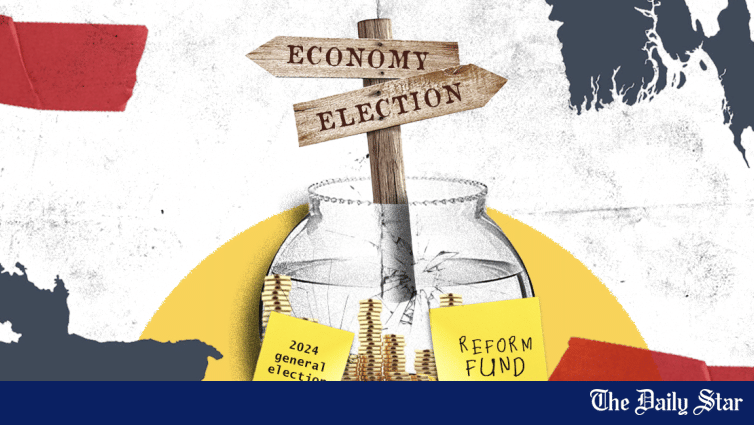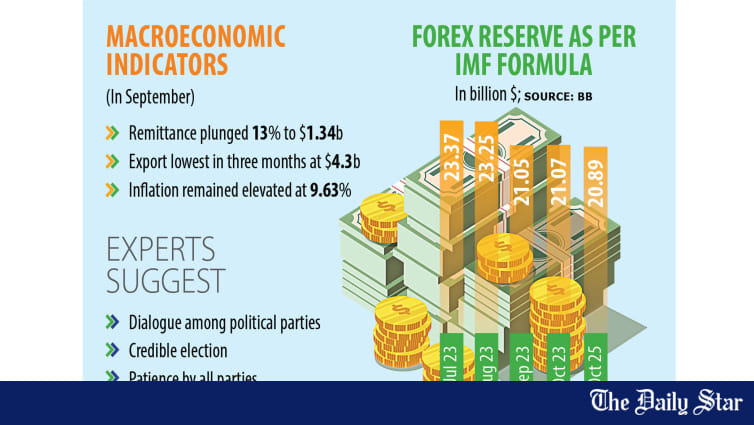



Bangladesh is currently facing economic and political crises, with macroeconomic instability, low tax revenue, and institutional failures [dbe2baf7]. The upcoming general election and allegations of imperfect past elections have contributed to the political crisis and uncertainties surrounding it [dbe2baf7].
In an article by Dr. Selim Raihan, the concept of a 'blended regime' in Bangladesh is discussed [dbe2baf7]. This regime combines aspects of a developmental state with the dominance of cronies and rent-seeking activities. The blended regime is characterized by the alliance of powerful political and business elites, leading to policy paralysis and a lack of critical economic and institutional reforms [dbe2baf7].
To address these challenges, the article suggests reforms in the banking sector, taxation sector, export diversification, and public finance management. It emphasizes the need for strong political leadership and mobilizing support for reform among the power coalition [dbe2baf7].
Despite the economic and political crises, Bangladesh's fundamentals, such as agricultural output, have been good, with a projected 6% growth by the IMF [8403eaf8]. However, the decline in foreign exchange reserves, loss in the value of the taka against the US dollar, and expensive imports have put pressure on the economy and the purchasing power of the citizens [49b2df1f].
The government's ability to implement effective economic policies and attract foreign investment is hindered by the political crisis and the uncertainty surrounding it [8403eaf8]. The decline in remittance earnings and exports has further depleted reserves, making it even more challenging for the government to address the economic crisis [8403eaf8].
The World Bank has slashed its economic growth forecast for Bangladesh, and the economic situation is expected to deteriorate further due to the exacerbating political uncertainty [49b2df1f].
In an article by KAS Murshid, the current state of the economy in Bangladesh is discussed, along with the challenges faced by the new government [077b9584]. The article highlights the impact of Covid-19 and geopolitical tensions on the economy. It emphasizes the need for inclusive development and a shift in focus towards human welfare [077b9584].
The article also addresses the macro crisis, the issue of remittances, and 'hundi' (informal money transfer). It suggests possible solutions such as regulating hundi and exploring the use of crypto exchanges [077b9584]. The author also discusses the changing nature of the political economy in Bangladesh and the importance of balancing foreign relations [077b9584].
To restore stability to the country, the government must take immediate and decisive action to address the economic challenges and improve governance [49b2df1f] [8403eaf8]. Maintaining good relations with major global players is also highlighted as important to avoid external pressure [dbe2baf7] [077b9584].